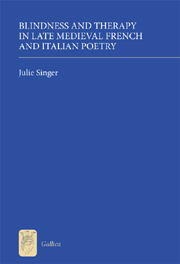Book contents
- Frontmatter
- Contents
- In loving memory of Mrs Doris Patz artist, benefactress, friend
- List of Illustrations
- Acknowledgements
- Introduction: On Rhetoric and Remedy
- Chapter 1 The Love-Imprint
- Chapter 2 Medical Blindness, Rhetorical Insight
- Chapter 3 Irony, or the Therapeutics of Contraries
- Chapter 4 Metaphor as Experimental Medicine
- Chapter 5 Metonymy and Prosthesis
- Chapter 6 Blindfold Synecdoche
- Epilogue. Just Words
- Bibliography
- Index
- Already Published
Chapter 4 - Metaphor as Experimental Medicine
Published online by Cambridge University Press: 12 September 2012
- Frontmatter
- Contents
- In loving memory of Mrs Doris Patz artist, benefactress, friend
- List of Illustrations
- Acknowledgements
- Introduction: On Rhetoric and Remedy
- Chapter 1 The Love-Imprint
- Chapter 2 Medical Blindness, Rhetorical Insight
- Chapter 3 Irony, or the Therapeutics of Contraries
- Chapter 4 Metaphor as Experimental Medicine
- Chapter 5 Metonymy and Prosthesis
- Chapter 6 Blindfold Synecdoche
- Epilogue. Just Words
- Bibliography
- Index
- Already Published
Summary
est la poisie belle et subtille quant elle puet servir a plusieurs ententes et que on la puet prendre a divers propos
poetry is beautiful and subtle when it can serve several meanings and be taken in different ways
Avision-Christine, preface, ex-Phillipps 128Contemporary disability theory warns of the danger of metaphorizing physical impairments: Susan Sontag maintains in Illness as Metaphor that ‘the most truthful way of regarding illness – and the healthiest way of being ill – is one most purified of, most resistant to, metaphoric thinking’, while David T. Mitchell and Sharon L. Snyder, in their groundbreaking study Narrative Prosthesis, characterize metaphors of disability as ‘opportunistic’ narrative devices. That said, in late medieval narrative it is often not just a disability or illness, but also its cure, that is metaphorized. Are such therapies ‘untruthful’ or ‘opportunistic’ as well? Or do they free the poetic subject from the constraints of disability metaphors, allowing for more flexible models of the symbolic potential of the body? A reading of remedial metaphors in late medieval French adaptations of Boethius's Consolatio Philosophiae – a text that is itself dependent on a rhetoric of illness and cure – demonstrates that metaphoric therapies serve as a vehicle for experimentation not just with medicalized imagery but with narrative and lyric form.
Boethius's Consolatio Philosophiae (524) is, as Pierre Courcelle and many others have demonstrated, a foundational text for late medieval vernacular poetics.
- Type
- Chapter
- Information
- Blindness and Therapy in Late Medieval French and Italian Poetry , pp. 113 - 146Publisher: Boydell & BrewerPrint publication year: 2011



